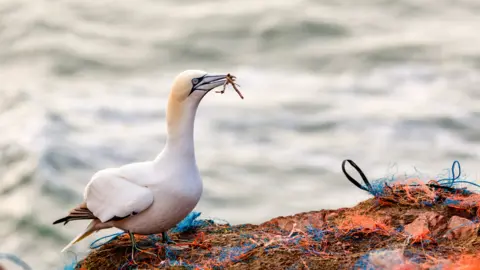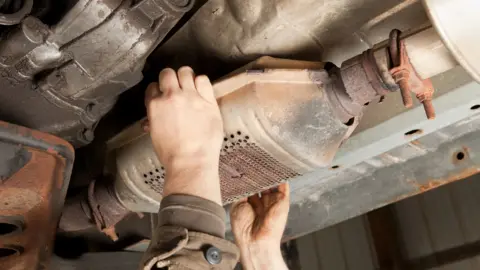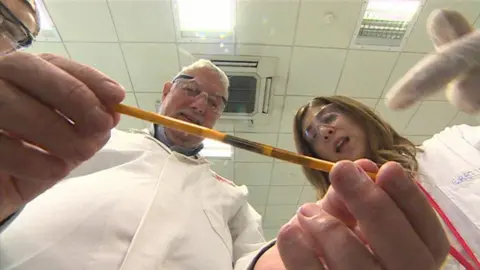Plastic waste: Cardiff chemists' £7m pollution push
 Thomas Schnitzler/Getty Images
Thomas Schnitzler/Getty ImagesYou have probably never given much thought to the science of catalysis.
But it is used to help manufacture virtually everything you own, and grow the food you eat.
Now scientists say it could also tackle some of the world's biggest environmental problems.
A team of researchers from across the UK are working on projects that could eventually cut plastic waste, purify polluted water and dirty air.
 BanksPhotos/Getty Images
BanksPhotos/Getty ImagesWhat is catalysis?
Catalysis is the study of materials which speed up chemical reactions.
Mix together certain molecules and it could take them years to interact, but throw in a catalyst and they will do so in seconds.
Industry relies on them to produce everything from building materials and fertiliser to medicines.
But they are probably best known for their use in vehicle exhaust systems, where they help break down the toxic gases produced by car engines before they are released into the atmosphere.

How else could they be used to help the environment?
At Cardiff University's Catalysis Institute, they have just been awarded £7m to try and answer this very question.
The team's director Professor Graham Hutchings describes his researchers as "pioneers of catalyst design".
They have already had huge success in developing a gold-based catalyst for the production of PVC - one of the most commonly made plastics.
It means the mercury-based compounds that were used previously are being phased out worldwide.
Now they want to find new ways of using catalysts to make sure plastics are recycled effectively.
"Blue Planet showed really visually the problem plastic is causing in our oceans," Prof Hutchings said.
"What we're interested in here is creating a circular economy where the molecules are going around and being used, rather than ending up in landfill or being burnt. That's a short-term fix which doesn't solve our global problems.
"We're looking at point sources of emissions such as power stations and steelworks, seeing whether we can use that CO2 and make something useful out of it.
"What happens here will eventually make a difference to people's lives.
"Existing industrial processes can always be improved and we should always seek to do that and minimise the amount of pollution that comes from them."
